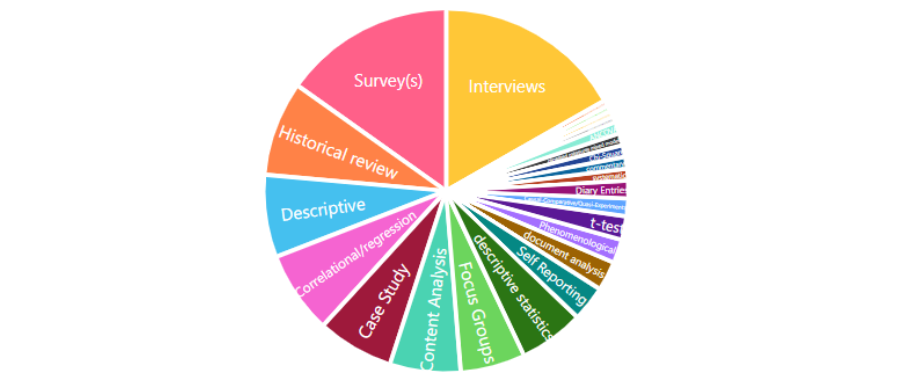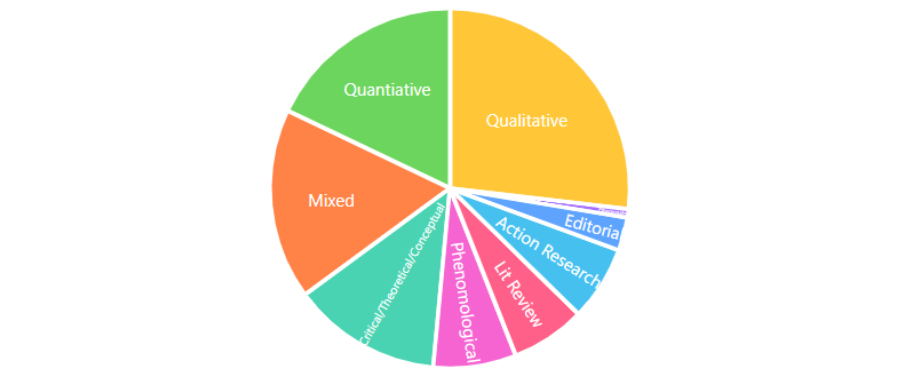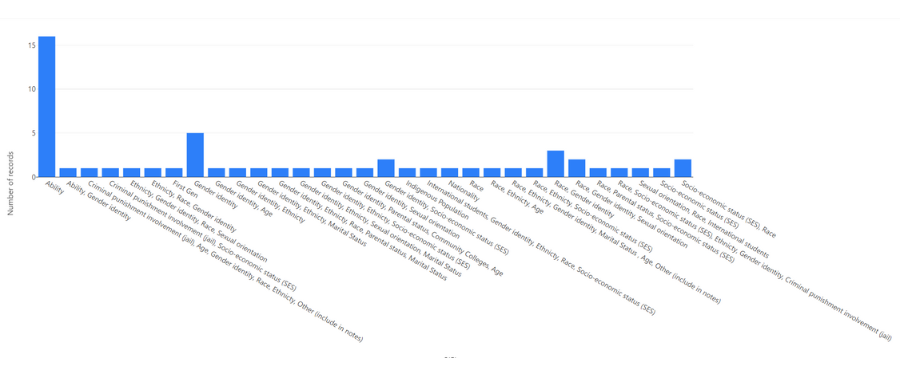Research Database
This descriptive database is composed of known empirical studies on the impacts of Collegiate Recovery Programs (CRPs). We identified, reviewed, and coded eligible studies to help us better understand the CRP research landscape and are delighted to now present it here as a resource for the field. Inclusion is not an endorsement of a study, its content, or its findings, as they have not been vetted for quality or any other indicator outside of basic qualifying information.
Method: Vest et al. (2021) conducted a systematic search of articles related to collegiate recovery programming published before August 2020. The 15 extracted study characteristics included publication type, study design, primary outcomes, reporting of behavioral addictions, mutual-help group attendance, sample demographic information, school size, ownership, and funding source.
Results: The PRISMA-guided search strategy identified 357 articles for abstract review; of 113 articles retained for full-text review, 54 studies met criteria for inclusion. Primary outcomes were coded into four domains: clinical, recovery experience, program characterization, and stigma. Most (57%) used quantitative observational designs and 41% employed qualitative research designs. Government or foundation grants funded 11% of the studies.
Database: The descriptive database builds on the work of Vest et al. (2021). All articles included in the initial scoping review were included in the database with similar methods using GoogleScholar for years 2020 – Present. Theses and Dissertations were also included when identified. Published works were uploaded into AirTable project management program. Items were assigned to one of six undergraduate or one of two graduate research assistants. The research team categorized and summarized items as follows: Lead author, supporting author(s), journal name, journal discipline, year, title, methodology/epistemology, analyses, key findings, themes, theoretical or conceptual framework, and integrative behavioral health areas. Journal publication outlets as dissemination options for future research in the field of collegiate recovery were categorized according to: journal aims/scope, discipline, metrics, dominant methods, submission dates, and special projects. To ensure inter-rater reliability, all items were reviewed a second time by the PI.
Publishing an article about collegiate recovery? Please submit the article to be included in this database.
The descriptive database will be updated on a semi-annual basis (approximately July and December). Please be sure to submit your published articles in order to see them posted in a timely manner.
Have a question? Reach out to us and let us know! By learning about what information you are looking for, we can customize the database to be most useful!
We will compile a Frequently Asked Questions page with the most commonly asked questions, so please don’t hesitate to ask us any inquiries that you may have!
Are you a researcher looking to utilize this database? Please contact Dr. Shore to request permission to utilize the descriptive database.
121
Studies
89
Unique First Authors
43
Unique Journals
36
Different Theoretical Frameworks
15
Journal Disciplines
Analyses

Methodology

Members Only
Page modified: January 3, 2025
© 2024 Association of Recovery in Higher Education, All Rights Reserved.
info@collegiaterecovery.org
Mailing Address:
P.O. Box 1541
Kennesaw, GA 30156


